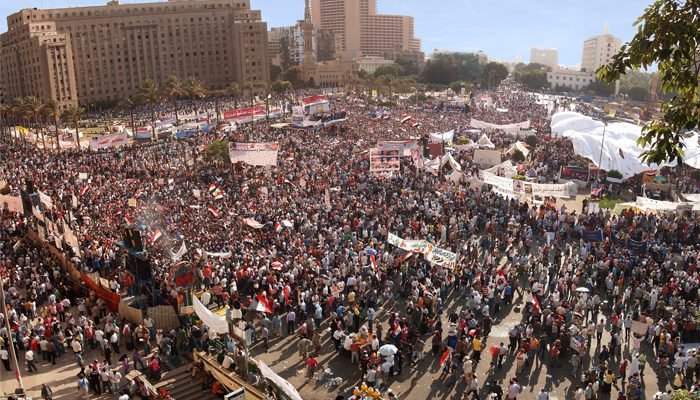Imagine. You are currently living in the small rural town of Sidi Bouzid in the African country of Tunisia. While you were out one day, you see a young man casually approach the government building. Upon looking closer, you realize that he has set himself on fire. Thoughts begin to race through your head: Who is this man, and more importantly why is he doing this?
His name was Mohamed Bouazizi and neither he nor onlookers could have predicted what events his actions would spark.
This occurred on December 18, 2010 and within days of this incident, protests began to emerge throughout the country. Hundreds of people began to riot, bringing about the downfall of their autocratic government.
A month after the protests began, Tunisian President Zine El Abidine Ben Ali stepped down. This momentum in Tunisia created uproar across the Middle East and has been known as the “Arab Spring” or the “Arab Awakening” because of the way the Arab movement came into “bloom” so quickly. Tunisia was not the only country whose leader stepped down due to the social and political unrest.
President Hosni Mubarak of Egypt stepped down on February 11, 2011, ending his 30-year presidency. Although Egypt has entered into a revolutionary period, it is still having transitional setbacks and not much has changed.
“I think maybe the result of the revolution will take longer than I expected,” Egyptian democracy activist Esraa Abdel Fattah said.
On August 23, 2011, Libyan leader Muammar Gaddafi was overthrown and later killed on Oct. 20 when the National Transitional Council took control of his hometown Sirte, Libya.
Although some countries have had extreme success with their protesting, others such as Djibouti and Zimbabwe have experienced governmental crackdowns of all protesting while the leaders remain in power.
These protests have been ongoing for over a year. A rising trend amongst the riots was the spread of information to the public. Because of the increasing literacy rates and living standards, the youth of these nations have become increasingly technology savvy. Facebook has been a common denominator of some nations informing the public of their protests.
Citizens have a quicker way of receiving information about government corruptions, human rights violations, and the extreme poverty going on in their own countries. Many protesters view their autocratic governments and monarchies as being outdated and long for a revolution.
The “Arab Spring” could be blamed for the worldwide phenomenon of protesters. Riots have been “springing” up in many continents, all differing in prominence and success. The United States dealt with the “Occupy” movement and Spain dealt with the Spanish Protests, also known as the Indignant movements.
With one man’s self-immolation, the globe was set on fire with riots, protests, and uprisings.
The Voice will continue coverage of the one year anniversary of the Arab Spring with special commentary by Vanguard faculty. Watch for the print edition on February 21st.

 Theatre department flourishes under Berkompas
Theatre department flourishes under Berkompas Worship Music is Dependent on the Individual
Worship Music is Dependent on the Individual Student’s Senior Project Becomes Theater Chapel Hit
Student’s Senior Project Becomes Theater Chapel Hit
Leave a Reply